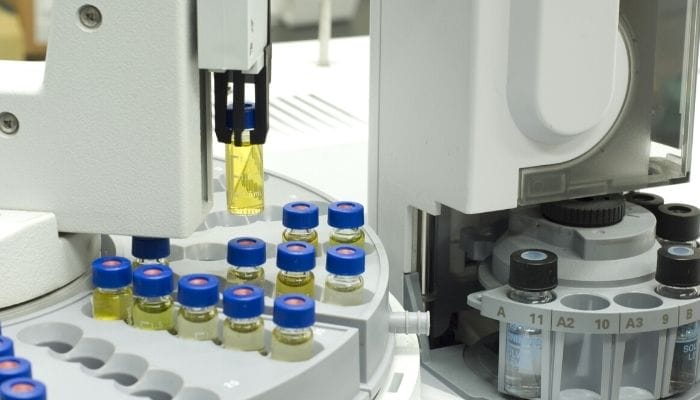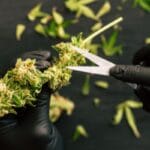Whether you’re working as a grower, tester, or wholesaler, the cannabis industry involves a slew of specialized workers who need equally specialized equipment. Though the scope of business will differentiate end-to-end companies from small, hyper-local entities, anyone who aspires to produce high-quality, consumer-safe cannabis products will need certain equipment to get the job done. Here are the essential analytical instruments for cannabis businesses.
Mass Spectrometry
Unsurprisingly, the cannabis industry relies on very technical, scientific processes to determine the potency and safety of its products. One of the main ways technicians achieve this attention to detail is via mass spectrometry analysis. Mass spectrometers essentially transform the sample into gas-phase ions and analyze the respective weights of each particle. With this mass data in hand, scientists can compare to control averages to determine the identity of each particle in the sample.
As a machine, mass spectrometers typically fall into two categories: solo mass spectrometers and chromatography-mass spectrometers. The difference between these machine types boils down to procedural scope. Mass spectrometers on their own can’t perform as many processes as chromatography-related ones. When a gas or liquid chromatography-mass spectrometer is in play, technicians can fully analyze a cannabis sample for pesticides and cannabinoids.
Chromatographical Analysis
Though mass spectrometers dip into chromatographical territory, these machines perform different functions. Chromatography equipment utilizes liquid or gas solvents to separate samples into their particulate substrates.
When the gas chromatogram or high-pressure liquid chromatogram chemically differentiates between the baser parts of the sample, the device produces its results on a chromatograph. The graph will show separate spikes of particle volume depending on the time it takes each substance to pass through the chromatogram’s column. This information helps determine THC potency and aids in pollutant testing.
Quick Note on Decarboxylation
One thing that cannabis business managers and technicians must watch out for is decarboxylation. Gas chromatography methods will decarboxylate cannabinoids in the process. Being wary of this process can help producers manage their purity and potency needs. But you should use a full-fledged decarb cannabis machine to fully remove terpenes and refine CBD oils if that is your goal.
Centrifugal Separation
Cannabis products aren’t just about leafy edibles or gaseous inhalables; consumers interact with a lot of CBD liquids. When a cannabis business must test or refine its liquids and oils, centrifugal separation is the best option. Depending on the volume you must process and the velocity you must achieve, you’ll need to decide between the benchtop and ultracentrifuge types.
You must have these essential analytical instruments for cannabis businesses on hand. Whether you need to analyze the cannabinoid profile or remove harmful pollutants, you must use high-quality devices to deliver safe and dependable products to your consumers. This way, you can correctly advertise psychoactive effects and purity percentages.







